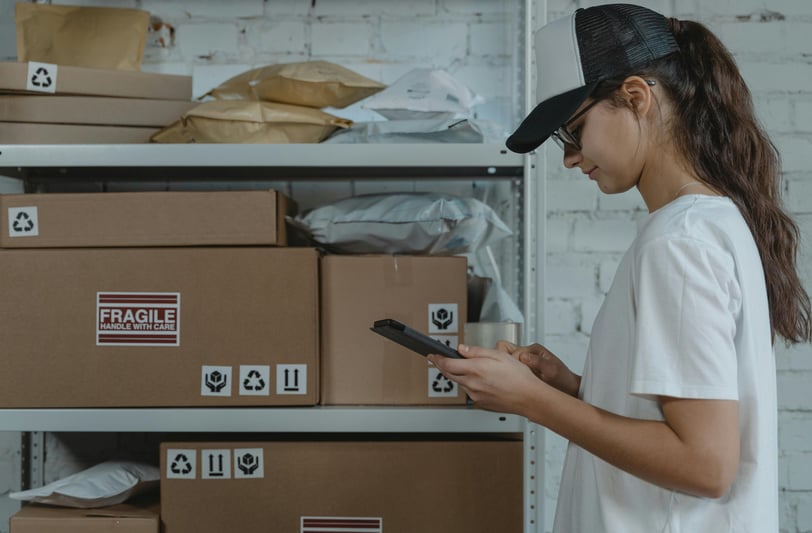Counterfeit Disruption: Operational Challenges and Anti-Counterfeiting Strategies in Philippine Supply Chains
Explore the operational challenges posed by counterfeit disruption in Philippine supply chains and discover effective anti-counterfeiting strategies. Learn how to enhance supply chain management to combat these issues.
QUANTITATIVE AND QUALITATIVE RESEARCH
Realyn Manalo
5/28/20253 min read


Counterfeit goods pose a rising operational threat to supply chains in the Philippines, affecting product integrity, customer safety, and business performance. From over-the-counter (OTC) medicines to fashion items sold through social media, fake products compromise quality control systems, reduce consumer trust, and create bottlenecks in logistics and enforcement. For operations managers, the challenge is twofold: how to prevent counterfeit infiltration across production and distribution points, and how to implement scalable detection or response mechanisms. As counterfeits grow more sophisticated, research must examine how operations management strategies—from traceability systems to consumer education—can mitigate disruption and reinforce product authenticity within real-world Philippine supply chains.
Who Can Use These Topics
This research is ideal for students and professionals pursuing the following courses or strands:
College Programs:
BS in Business Administration major in Operations Management
BS in Industrial Engineering
BS in Supply Chain Management
BS in Pharmacy (with operations or distribution focus)
BS in Information Systems
BS in Business Analytics
Senior High School Strands:
Accountancy, Business, and Management (ABM)
General Academic Strand (GAS)
Why This Topic Needs Research
From an operations perspective, counterfeit products disrupt every phase of the supply chain—from procurement and warehousing to customer delivery. These research gaps highlight unresolved operational risks:
Absence of real-time, consumer-usable counterfeit detection tech: Although Gallego Jr. et al. (2024) analyzed buyer behaviors around fake OTC medicines, they emphasized the lack of scalable tools that consumers or frontline staff can use for operational product screening at the point of sale.
Lack of operational insight on integrating IP education in youth-targeted supply chains: Bumanglag (2022) recommended teaching IP concepts in schools, but research has yet to assess how this affects long-term product integrity at the retail level, especially for youth-dominated markets like fashion and cosmetics.
Missing operational models for social media-linked counterfeit sales: Manansala (2022) studied digital influence on counterfeit shoes, but did not explore how varying social media patterns affect fake product distribution efficiency and detection within logistics workflows.
Unmeasured effectiveness of anti-counterfeit interventions in packaging and logistics: While Andrada and Co (2024) proposed brand awareness efforts, no operational study has evaluated how such strategies—like packaging redesign or inventory tagging—affect shrinkage, returns, or consumer complaints in real business environments.
No validation of influencer-driven purchasing behavior in Philippine logistics models: Renganathan et al. (2025) linked influencers to counterfeit demand in Malaysia. However, operations researchers in the Philippines have yet to explore how influencer-triggered surges in fake demand affect order processing or distribution networks.
Lack of IP systems testing in emerging-market operational environments: Alfaro et al. (2025) presented trademark law effects in Shanghai, but their findings haven’t been applied to operations under the legal and logistical realities of Philippine markets, where enforcement lags and product monitoring systems vary.
No performance data on digital traceability in Southeast Asian pharmaceutical chains: Tun (2022) called for cross-border enforcement tools, but ASEAN countries like the Philippines still lack research on how blockchain or serialization systems perform in fragmented, high-risk medicine supply chains.
Feasibility & Challenges by Target Group
Get Your Free Thesis Title
Finding a well-structured quantitative research topic can be challenging, but I am here to assist you.
✔ Expertly Curated Topics – Not AI-generated, but carefully developed based on existing academic studies and research trends.
✔ Comprehensive Research Support – Includes an existed and updated research gaps, explanation of variables as well as SDG relevance.
✔ Personalized for Your Field – Get a thesis title tailored to your academic requirements and research interests.
Prefer video content? Subscribe to my YouTube Channel for expert insights on research topics, methodologies, and academic writing strategies.
References
Alfaro, L., Bao, C., Chen, M. X., Hong, J., & Steinwender, C. (2025). Trademarks as Intellectual Property: Information Frictions, Firm Growth, and Competition.
Andrada, M. D., & Co, M. K. L. P. (2024). BRAND AWARENESS TOWARDS COUNTERFEITED AND BRANDED PRODUCTS: AS A CONSUMER PROTECTION STRATEGY. Ignatian International Journal for Multidisciplinary Research, 2(5), 1748-1764.
Bumanglag, M. L. (2022). Young Filipinos’ Attitudes Towards Counterfeit Products: A Descriptive Study on Attitudes and Perceptions: A Study by the IP Academy of the Intellectual Property Office of the Philippines. Asia-Pacific Journal of IP Management and Innovation, 1(1), 14.
Gallego Jr, M., Caparro, D., Macorol, R., Manalastas, T. J., & Olaivar, C. A. (2024). A quantitative study into purchasing practices and influential factors among Filipino consumers regarding counterfeit over-the-counter medicines in Philippines. The Eurasia Proceedings of Science Technology Engineering and Mathematics, 28, 123-133.
Manansala, L. D. (2022). THE EFFECT OF SOCIAL MEDIA ON CONSUMERS’INTENTION TO PURCHASE COUNTERFEIT MEN’S SHOES IN THE PHILIPPINES.
Renganathan, T. S., Goi, M. T., & Goi, C. L. (2025). Social media influencer attributes and purchase of counterfeit fashion goods: Self-determination as a mediator. Journal of Global Scholars of Marketing Science, 1-24.
Tun, T. (2022). Enforcement Action against Counterfeiting of Medicine (Doctoral dissertation, MERAL Portal).
